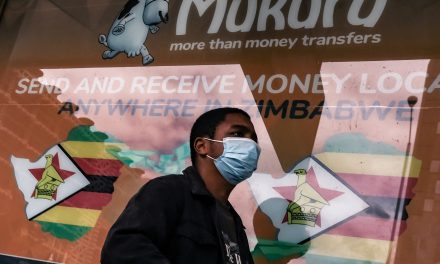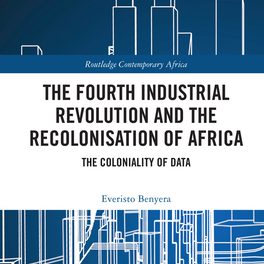At the Abuja-based Centre for Journalism, Innovation, and Development in Nigeria, Ijeoma Okereke, a programme officer, keeps a list of government agencies that she says respond to requests for information and those that do not.
In 2021, when her organisation tried to measure how public institutions release information and data to citizens under the country’s freedom of information (FOI) law, they sent out 600 requests. Only 180, or 30%, were answered.
A few years ago, the outcome would likely have been the same, perhaps slightly better, she says. “I don’t think things have improved. In terms of providing information, they have not,” says Okereke, who works on a programme that tracks the implementation of government developmental projects.
Nigeria has recorded some success in its six-year-old commitment to the open government initiative, a multilateral effort to promote government transparency and empower citizens, voluntarily putting up government spending data, contract data, and corporate beneficial ownership details online. The government’s statistics bureau has also published reports more regularly and efficiently than before.

Gbenga Aborowa from News Central at the station’s premises in Lagos. Nigeria. Photo by PIUS UTOMI EKPEI / AFP
Ironically, while that happens, however, more government offices have blocked public access to vital information and data requested under the freedom of information statute. Eleven years after the law was enacted, the number of government offices complying with its provisions has not improved.
In 2015, a non-governmental group, the Public and Private Development Centre (PPDC), found that out of 116 offices it evaluated on the basis of their response to requests for information, only 10 achieved the highest level of responsiveness. In 2020, only two did, even when the number of agencies surveyed had risen to 213.
Most public institutions also flouted a requirement to submit the number of requests they responded to or denied in a year. The justice ministry, which receives these updates, said in its latest published report in 2019 that about 90% of federal institutions had not filed such information since the law was passed in 2011.
Things improved somewhat in 2020 and 2021, but “not enough to call it major growth”, said Joseph Gowon, the assistant head of the FOI unit at the justice ministry.
Government agencies cite several reasons for not complying with the law to release the information and data citizens seek. At a workshop in February to train government FOI employees, officials said they could not comply due to poor record-keeping in public institutions and a widespread lack of understanding of the law by their chief executives. They also complained about the government’s longstanding secrecy laws that seek to prevent the disclosure of information.
“Public institutions should refrain from hiding behind the Official Secrets Act or the Federal Public Service Rules or other such instruments to deny members of the public their rights of access to information because the FOI Act supersedes those laws and policy documents,” the workshop organisers said in a statement.
Lack of sanctions or accountability has also meant some officials act with impunity in refusing access to data. The country’s FOI Act makes no provision for consequences against those who refuse to release information or data to the public, or those who fail to file annual reports to the justice ministry. The ministry said without such authorisation to punish offenders, it has resorted to “naming and shaming”.
Yet, the challenge goes beyond the government, says Ayode Longe, the programme manager at Media Rights Agenda, a media training organisation in the Nigerian capital, Abuja. He said citizens and journalists were not doing enough to use the law to obtain information.
Longe said journalists and citizens filed too few requests and did not follow through with legal options to compel institutions to comply as the law allowed.
“It is easy to think that people are discouraged because they did not receive a response at first – and I understand the issue of deadlines and moving onto the next story, but more can be done,” he said.
To help, his organisation has set up a legal aid initiative for citizens and journalists seeking judicial redress if they are denied information to which they are entitled. Still, he said, very few had taken advantage of the opportunity. “A law is as good as it is implemented,” he noted.
Adesina Azeez, a professor at the faculty of communication and information sciences, at the University of Ilorin, said there is a cultural element; government preferred to keep data hidden, and citizens were reluctant to ask questions.
“It is an issue of culture and attitude. It is the reason the government has been doing the things they have been doing for years and getting off scot-free,” he said. “People are not asking questions as they should.”
Access to information is one of four transparency commitments Nigeria agreed to under the multilateral open government partnership initiative in 2016, alongside fiscal transparency, anti-corruption, and citizen enlightenment.

Nigerian President Muhammadu Buhari (c) and Vice President Yemi Osinbajo (L) with Facebook founder Mark Zuckerberg during his visit to the presidential villa in Abuja, on September 2, 2016. Photo: Sunday Aghaeze/AFP
Beyond ensuring more public institutions respond to requests for information, the government agreed to push more offices to publish information even without being asked to do so, a move called proactive disclosure.
The PPDC has said no public institution it examined between 2019 and 2021 made full proactive disclosure. Full proactive disclosure in its methodology means an organisation publishes comprehensive financial data, names, salaries, titles of its employees, and details of all contracts, grants, and licences.
In the past year, the Nigerian government has voluntarily published data in an effort to close that gap. It launched an “open treasury” online platform, where it publishes government spending; it created a beneficial registry of companies and an “open contracting” platform, which publishes details of government contracts.
That effort has revealed another shortcoming; published figures are not always accurate and recent, said Joshua Olufemi, founder of Dataphyte, a platform that seeks to interpret government data to drive public participation in policymaking.
“While they have been proactive here, releasing data ahead through the instruments of open government, there are issues of relevance and recency (or currency),” Olufemi said.
Nigeria’s problem with inaccurate data is such that the country cannot count itself. The government estimates that the size of the population ranges between 180 million and 210 million, but few people trust these numbers. The last census, in 2006, put the population figure at 140 million, but that figure was disputed as the count was enmeshed in controversy amid allegations of malpractice.
While the statistics bureau has improved the frequency of its reports, key development data are still sourced from international entities such as the World Bank – a reflection of capacity problems common with many other African countries.
In 2020, the World Bank rated the capacity of Nigeria’s statistical system at 53.3%, a decline from its score a year earlier and significantly lower than those of its peers. Ghana, for example, scored 71.1%, while South Africa and Egypt scored 81.1% and 82.2%, respectively.
Analysts say inaccurate data poses a governance risk and can hamper Africa’s ability to achieve its development goals.
“If the data are not right, the policy response would also not be. Accurate and reliable information is necessary for understanding the African landscape and narrative,” said Marie-Noelle Nwokolo and Natalya Apopo, researchers at the Johannesburg-based think tank the Brenthurst Foundation, writing in a January 2021 article.
For now, Olufemi at Dataphyte said that to side-step the difficulties in obtaining quality information and data, his organisation conducts its own surveys.
“The way we are innovating is to go into the field and curate our own data. But we cannot do enough,” Olufemi said.
[activecampaign form=1]
Ini Ekott is the deputy managing editor at Premium Times, Nigeria. He has researched and written extensively on governance and leadership in Africa. He is a former Wole Soyinka investigative reporter of the year, and was a member of the global team of journalists that conducted the Pulitzer-winning Panama Papers reporting












